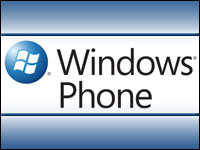
A tech enthusiast site says it has uncovered evidence of a dual-coreHTC phone called the “Glacier” that may be headed for T-Mobile.The report by AlienBabelTech.com details a since-removed entry on benchmarking site GLBenchmark showing a phone called “HTC Glacier” being tested by a user whose LinkedIn social networking profile reveals he works for T-Mobile.
The device in question clocks in on a processor test at three times faster than HTC’s fastest device, according to AlienBabelTech, a feat that it sayscan only be achieved by a dual-core handset. The AlienBabelTech report doesn’t provide many details about the device, but a screen capture reportedly taken from the GLBenchmark website shows the handset having an 800×480 screen.
Fastest Smartphone
As might be expected, HTC spokesperson Ricky Bird told TechNewsWorld the company isn’t in the habit of speculating on rumors and declined to comment on the reports or on its future product plans.
Nor was there a response from Qualcomm, which in June announced it had begun shipping out samples of its dual-core Snapdragon processors to manufacturing partners, of which HTC is one.
If the ABT report is true, the handset would appear to be poised to become the fastest yet on the smartphone market, which has not yet heavily promoted handset speed as a selling feature.
While more and more specifications are being touted in sales literature for smartphones, processor speed isn’t the sole defining factor in terms of user experience, said Jeff Orr, principal analyst for wireless at ABI Research.
“I think it tells part of the picture, part of the story,” he told TechNewsWorld.
It’s almost a certainty that advanced processors like Qualcomm’s dual-core Snapdragons will become prevalent in bleeding-edge handsets, said Orr, but less edgy processors will still have a significant role to play in the cellphone marketplace as manufacturers start to push costs down to reach new markets.
Fast, Smart and Big?
New use cases will continue to emerge, pushing handset manufacturers to provide more capable hardware, observed independent telecom industry analyst Jeff Kagan.
“We’re going to see more and more of these really hot ideas that require a very fast network,” he told TechNewsWorld. “It also requiresan advanced device.”
What about battery power? Today’s devices seem barely able to keep up with the demands of current-generation processors, much less the coming dual-core chips.
Orr offered a two-word response: power management.
Barring an unforseen leap in battery technology, it will be up to device manufacturers, operating system designers and application developers to find ways to efficiently and quickly power down unused components and even parts of the CPU itself to save power.
Current handsets reap some of that benefit, and capabilities should continue to advance, Kagan said.
Processors themselves are also becoming smaller and more efficient, he pointed out, forestalling the likelihood that phones, once beloved for their diminutive nature but now increasingly equipped with large screens, will have to further grow in size to accommodate bigger batteries.




















































